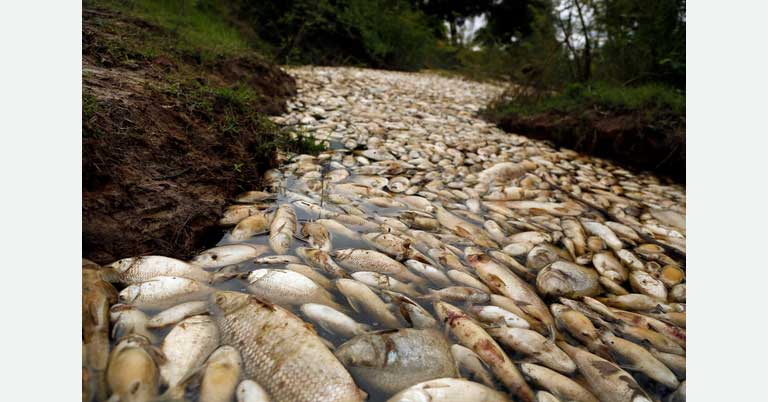Residents of Menindee, a small town of 500 people in New South Wales of Australia, Friday, woke up to millions of dead and rotting fish in the Darling-Baaka River. The local government blamed heatwave and climate change for the incident, saying the same event happened in 2018 and 2019.


Residents said the dead fish filled the river for as long as the eyes can see, and that boats had to plow through volumes of rotting fish to move a few inches. The government said the 2018 and 2019 incidents where millions of fish died in the same fashion were caused by poor water quality and sudden temperature changes. They said this recent incident shows that it will be a recurring event.
“It’s horrific really, there’s dead fish as far as you can see,” a town resident, Graeme McCrabb, said. “It’s surreal to comprehend. The environmental impact is unfathomable. You can just imagine leaving a fish in your kitchen to rot with all the doors shut and no air conditioner, and we’ve got millions of them.”
The New South Wales government said the Darling-Baaka River is part of the Murray Darling Basin which is the largest river system in Australia. Residents said the regional tributary of the river is used for washing and bathing, among other domestic uses. But with the massive die-offs of fish and the pollution in the river, the water will not be suitable for domestic use for a long time, causing significant distress to the people of Menindee.
Extreme weather conditions such as drought and flooding have caused a massive reduction in the amount of oxygen available to fish in the river, causing them to die off. The authorities said federal agencies and the government must step up efforts to reduce climate change and return the environment to its pristine conditions for life to continue as usual.
“These fish deaths are related to low oxygen levels in the water (hypoxia) as floodwaters recede,” the state government said in a statement. “The current hot weather in the region is also exacerbating hypoxia, as warmer water holds less oxygen than cold water, and fish have higher oxygen needs at warmer temperatures.”
The authorities equally blame a long stretch (40km/24 miles) of toxic algal bloom as part of the problems unsettling the ecosystem of the Darling River. The government 2012 spent about 13 billion Australian dollars to restore the ecosystem of the river.
